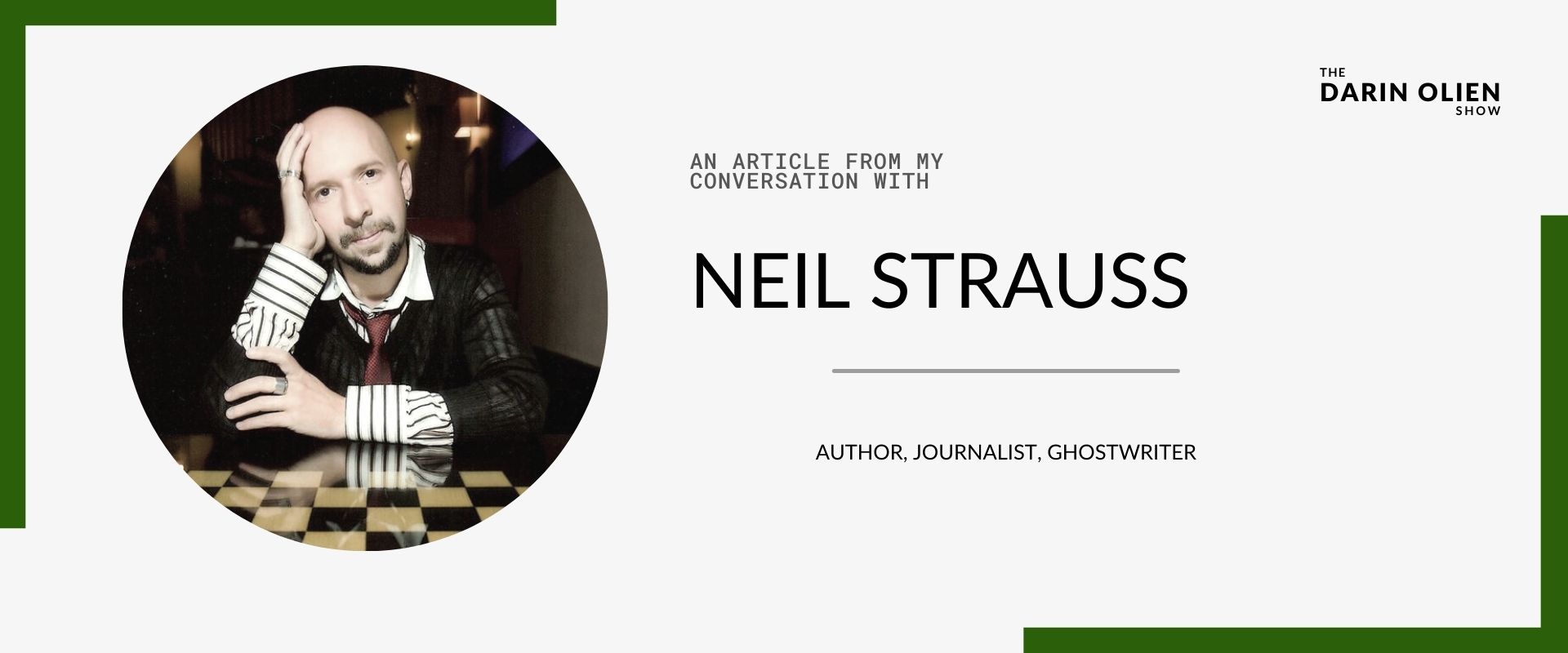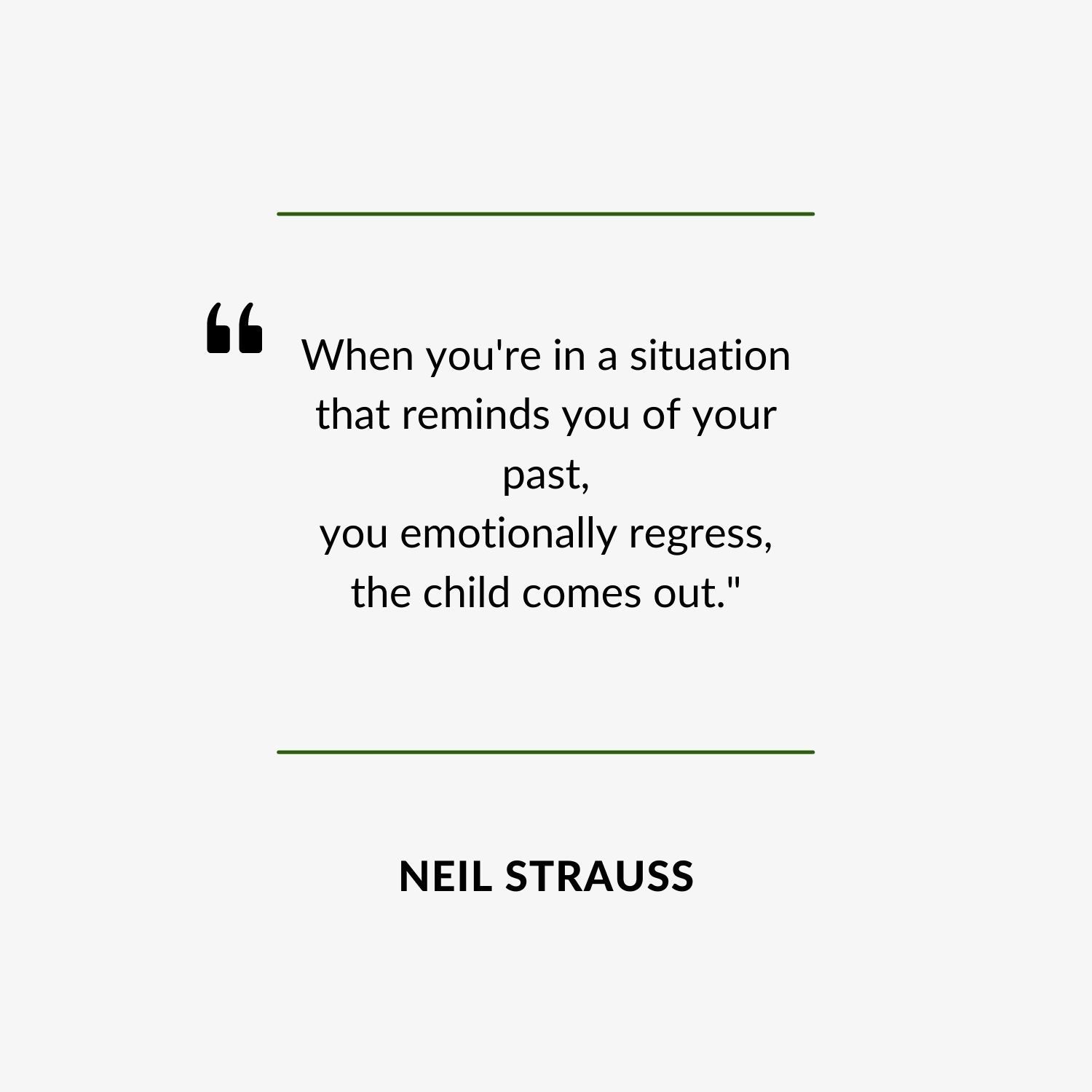14 Jul Breaking the Cycle of Unhealthy Relationship Patterns

Podcast: Play in new window | Download
Subscribe: RSS
The relationship we had with our parents as children continue to affect the current relationships in our life. There’s really no way around it. However, once you’re aware of the unhealthy patterns, you can begin to break down your past to improve your future relationships.
On a recent episode of The Darin Olien Show,
I sat down with one of my best friends, seven-time New York Times best-selling author Neil Strauss. Neil is incredibly self-aware and has spent most of his adult life working through unhealthy patterns he picked up in his childhood.
Neil and I have both belonged to the same men’s therapy group for years. Aside from that, he’s done many retreats and therapy programs in order to sort through the way he approaches relationships. “I spend a lot of income on improving myself,” he told me.
Acknowledging the Past

We spend a lot of energy running from our past. If we could somehow just put it behind us and stop thinking about it, we’ll be fine, right? Wrong. Ignoring the issues that have shaped the unhealthy way you deal with people and relationships in the present is only creating more frustration and sorrow for yourself. We have to learn how to change what Neil calls our “weird subconscious patterns.”
It’s imperative that we dig into our pasts, no matter how painful they might be, and pick apart the things that make us who we are, the good and the bad. To do this, therapy is essential. Neil recommends group therapy before diving into intensive one-on-one therapy.
Group therapy is less scary, especially if you’re new to it. It can be helpful to listen to peers going through similar situations. In the group Neil and I belong to, we all hold each other accountable, which has made such a big difference in all of our lives.
Reparenting
A big theme in Neil’s book and the conversation we had on the podcast was the concept of “reparenting.”
“Reparenting means being the parent to yourself that you needed, not the parent that you had,” he explains.
When we don’t deal with the messed-up dynamics of our parental relationship/s, it’s almost like it triggers the child in us to overreact. Or, as Neil explains it, “When you’re in a situation that reminds you of your past, you emotionally regress, the child comes out.”
Neil talks a lot about being uncomfortable with affection from a significant other. It wasn’t until he realized that it stemmed from his relationship patterns with his own mother that he was able to recognize the trigger and then talk himself down from that uncomfortable feeling. He can now associate affection with love instead of trauma.
So how do you break through your own stuff as Neil did? It takes work. But you basically have to catch yourself every time and reprogram your brain to react differently. Once you’re aware of the child-like reaction, you can identify the trigger, and examine it.
Breaking down years and years of unhealthy patterns is definitely grueling work. But it’s so worth it. You don’t have to deal with everything at once. Take it one step at a time and really soak into the process. We’re all a work in progress, but the sooner you start doing the work, the sooner you can live free from the anchors of your past.
For more on my conversation with Neil, click here.
Podcast: Play in new window | Download
Subscribe: RSS


Sorry, the comment form is closed at this time.